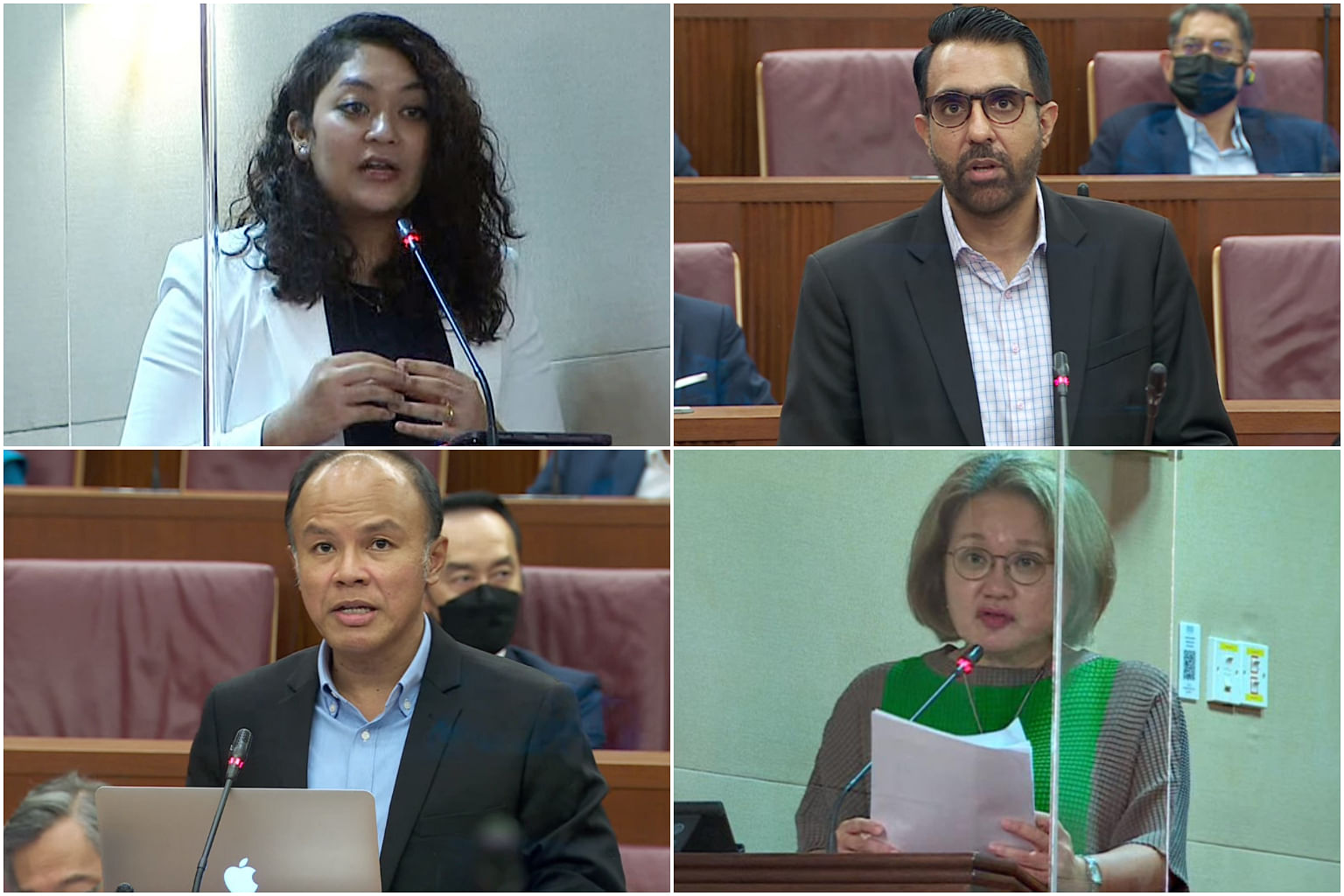For subscribers
From The Gallery
Raeesah Khan saga is ultimately about trust and integrity
Sign up now: Get ST's newsletters delivered to your inbox

(Clockwise from top left) Former WP MP Raeesah Khan, Leader of the Opposition Pritam Singh, WP chairman Sylvia Lim and WP vice-chairman Faisal Manap.
PHOTOS: GOV.SG
SINGAPORE - In Japanese director Akira Kurosawa's 1950 film Rashomon, a murder is described in four contradictory ways by four witnesses. The term "Rashomon effect" has come to represent contested interpretations of events, disagreements over evidence, and the subjectivity of human memory and reporting - all of which were on full display in Tuesday's (Feb 15) debate on two parliamentary motions on the Committee of Privileges' (COP) findings.
A few things stood out. First, Leader of the Opposition Pritam Singh refuted the claim that he had "weaponised" Ms Raeesah Khan's mental health condition, to which COP member and Minister for National Development Desmond Lee pointed out that the specific word was in a draft of the COP report, but removed in the final version after the COP discussed it in secrecy.


